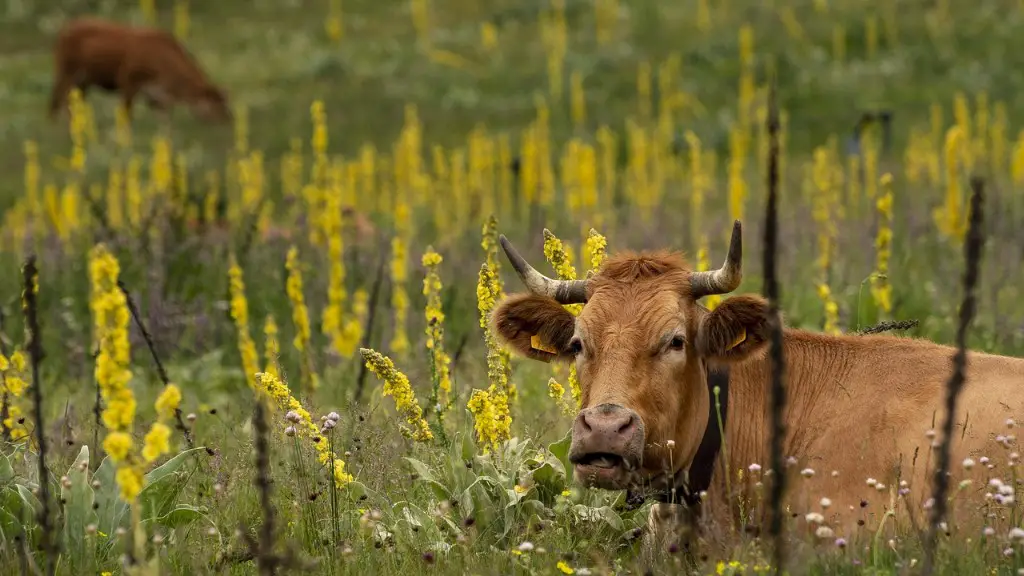Does Farming Include Animals: The Truth

When you think of farming, images of vast fields of golden crops might come to mind. But does agriculture include animals? Absolutely! Farm animals resources and livestock management are integral components of sustainable farming and agricultural animals are indispensable in preserving biodiversity and ensuring food security. Let's delve into this fascinating area where nature's best friends meet modern science.
The Role of Animals in Farming
Why Livestock Matters
Imagine a farm without the hum of a cow's soft moo or the clucking of a contented chicken. It might seem serene, but it wouldn't be sustainable or efficient. Livestock is more than just a part of agriculture; it's the heartbeat that keeps the agricultural system alive and thriving.
Diversifying Farm Resources
In the world of sustainable farming, diversity is key. Just as a balanced diet includes a variety of nutrients, a balanced farm includes diverse resources. According to the FAO, incorporating livestock into farming practices can significantly enhance soil fertility through manure, provide a valuable source of food and nutrition, and support mixed-cropping systems that boost overall productivity.
Animal Husbandry: A Balanced Ecosystem
Animal husbandry, the practice of managing farm animals, ensures that these creatures are not just a means to an end but a vital part of the ecosystem. Proper livestock management involves providing adequate care, nutrition, and health checks, which in turn balances the farm's economy and ecology. Just as a well-oiled machine runs smoothly, a farm with meticulous livestock care operates efficiently, producing quality outputs while maintaining a healthy environment.
Agricultural Animals: More Than Meets the Eye
Pigs, cows, chickens, and sheep are just a few of the agricultural animals that play crucial roles on farms. Each species offers unique benefits. For instance, dairy farming not only provides milk but also manure that enriches the soil. Meanwhile, the meat and eggs from poultry farming are essential protein sources. Combined, these animals improve the farm's economic stability with their marketable products.


Impacting Sustainable Farming
The Environment and Beyond
Livestock's contribution to farming extends beyond economic gains. It enhances sustainable farming by recycling nutrients that would otherwise go to waste. Organic manure improves soil health, helping crops grow better and reducing the need for synthetic fertilizers. So, the next time you savor a mouthful of vegetables, remember that animal husbandry played a part in their growth!
Economic Benefits and Livelihoods
Farming animals is a lucrative business, contributing significantly to the global economy. From dairy production to meat exports, agricultural animals ensure farmers' livelihoods, supporting rural communities worldwide. For instance, in societies where crop failures are common, livestock can act as insurance. When crops fail, livestock remain productive, providing a steady income stream.
Agricultural Animals: The Future of Farming
Science has continuously evolved to support sustainable animal husbandry. Techniques such as precision feeding and smart sensors are revolutionizing how farmers manage livestock. These advancements not only reduce costs but also minimize environmental impact, ensuring animals live healthier lives and produce high-quality outputs. Just as bionic eyes enhance vision, modern tools enhance sustainable farming practices.
The Public Perception
Can we farm without harming animals? This question has sparked intense debates globally. Modern farmers are increasingly adopting ethical and humane practices, prioritizing animal welfare while boosting productivity. Public education and participation are essential. As consumers, our choices shape farm practices. Supporting farms that prioritize animal well-being can drive industry-wide change. It’s a win-win for everyone involved.
So, does agriculture include animals? Absolutely. Without livestock, the agricultural system would collapse, leading to a drastic loss in productivity and biodiversity. Livestock are not just part of modern agriculture; they are its backbone, ensuring sustainability and prosperity.
Conclusion
Livestock management is a critical component of sustainable farming. Agricultural animals ensure food security, recycle nutrients, and support the economic stability of rural communities. As consumers, we have the power to influence farm practices by supporting ethical and humane animal husbandry. Embrace these insights, educate yourself on farming trends, and join the movement towards sustainable agriculture. To learn more, click here!
Frequently Asked Questions
Q1: Do all farms need to include animals?
A: While not all farms are required to keep animals to be classified as farms, including livestock can significantly enhance sustainability and productivity. Livestock provides essential resources like manure for soil health and diverse food sources, improving overall farm efficiency.
Q2: How does livestock impact sustainable farming?
A: Livestock contributes to sustainable farming by recycling nutrients, improving soil health, and providing diverse food sources. Animal husbandry practices that prioritize animal welfare and reduce environmental impact are key to sustainable agriculture.
Q3: What are the economic benefits of agricultural animals?
A: Agricultural animals offer significant economic benefits through dairy, meat, and agricultural byproducts like manure. They support rural livelihoods and provide a steady income stream, especially during crop failures. Additionally, the livestock industry contributes significantly to the global economy.
Q4: How can we support ethical animal husbandry?
A: Supporting ethical animal husbandry involves choosing products from farms that prioritize animal welfare. Consumers can also educate themselves about best practices in livestock management and support policies that encourage humane treatment of agricultural animals.
Q5: What role do modern technologies play in livestock management?
A: Modern technologies such as precision feeding and smart sensors enhance livestock management by reducing costs and minimizing environmental impact. These innovations ensure animals live healthier lives and produce high-quality outputs, contributing to sustainable farming practices.
```
0 Response to " Does Farming Include Animals: The Truth"
Post a Comment